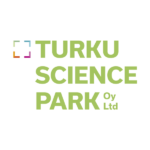EIT Health Study: Healthcare labour market calls for immediat AI skills
The recent EIT Health and McKinsey & Company’s report “Transforming healthcare with AI: The impact on the workforce and organisations” has exposed an urgent need to attract, educate and train a generation of data-literate healthcare professionals, whilst up-skilling the current workforce if we are to fully realise the transformative potential of Artificial Intelligence (AI).
A new report from EIT Health and McKinsey & Company resonates to the European Skill Agenda, the European Commission presented on 1 July to improve sustainable competitiveness, resilience and ensuring social fairness for all. According to the Agenda currently, at least 85% of jobs require some level of digital ability, while only 56% of adults had at least basic digital skills in 2019. Between 2005 and 2016, 40% of new jobs were in digitally-intensive sectors. As Europe sets off on its path to recovery, the need to improve and adapt skills is great – and this resonates with EIT Health and McKinsey & Company’s report to encourage the applications of AI solutions in healthcare. According to the report, basic digital skills, biomedical and data science, data analysis, and the fundamentals of genomics will be critical, if AI and machine learning is to penetrate healthcare services.
„These subjects are rarely taught alongside traditional clinical sciences systematically. And so through no fault of their own, today’s healthcare workforce is simply not yet equipped for the adoption of AI. Being at the forefront of healthcare innovation in Europe, we are seeing an increasing number of tangible, impactful and exciting AI solutions created. However, we must couple the generation of new technology that can relieve some of the pressure on healthcare services, with the ability for it to be integrated into care delivery. Now is the time for us to address the gaps so that Europe does not fall behind in the application of AI” – said Jorge Fernández García, Director of Innovation, EIT Health and co-author of the report.
The data speaks for itself. The recent HelloAIRIS summer school regarding AI in Healthcare organised by GE Healthcare, Leitat and KTH Royal Institute of Technology in Stockholm in collaboration with EIT Health have resulted in 900 applicants only this year. Eventually, 400 participants were selected to attend this unique online course. The main aim of this course is to engage talents from Central, Eastern or Southern European regions and build a community of AI-ninjas equipped with future-needed skills and marketable EIT Health certificate.
„Our experiences while working with start-ups in emerging regions, shows that there is a huge need for upskilling professionals and improving digital health literacy. The summer online course that we developed with the essential engagement of our Partners is another proof that AI is a skill of the future. The demand for this course was higher than expected”, said Monika Toth, EIT Health InnoStars RIS Programme Manager.

(Visualisation: Shutterstock)
Which healthcare professionals need AI skills the most?
At present, diagnostics is the main application of AI in healthcare. However, in the next 5-10 years, healthcare professionals expect clinical decision making to top the list of applications according to the EIT Health and McKinsey & Company’s survey which included a survey of 175 people on the frontline of healthcare delivery and interviews with 62 decision-makers. The authors of the report highlight that we need not only to attract, train and retain more healthcare professionals, but we also need to ensure their time is used where it adds most value – caring for patients. Supporting the widespread adoption and scaling of AI could help alleviate resource capacity shortfalls both now and in the future. Building on automation, Artificial Intelligence can revolutionise healthcare: it can help to improve the day-to-day life of practitioners, letting them refocus their energy on their patients, spending less time on administrative tasks and more on direct delivery of care. For example with the potential to free up 20 per cent or more of radiologists’ time by handling processes and admin, AI solutions can let them focus more on what the image means and then how to work with patients and clinical teams to further personalise and improve care. AI can improve the speed of diagnostics and in several cases, their accuracy as well. In 2015, algorithms overtook humans in visual recognition in the ImageNet Challenge Large Scale Visual Recognition Competition, improving from an error rate of 28 per cent in 2010 to 2.2 per cent in 2017, versus a typical human error rate of about 5 per cent [1]. More and more AI-based solutions come from emerging Europe. Brainscan, a start-up from Poland uses Artificial Intelligence to improve the efficiency of interpretations of brain CT scans by integrating tools for classifying, localising and comparing brain pathology changes in the radiological workflow. Another successful example for using AI is the EIT Health-accelerated Italian start-up PatchAi – the first cognitive platform for the collection and predictive analysis of patient-reported data in clinical trials, embedding an AI-powered virtual assistant mimicking human empathetic conversations to engage and motivate patients and increase protocol compliance. In Hungary InSimu has developed a solution that allows doctors, medical students and medics to practise on virtual patients, making diagnoses in a nearly real-life situation. While Hungarian Sineko aims at revolutionizing international teleradiology with its GRAID software translating radiological reports. In Portugal, iLof, the Winner of EIT Health Jumpstarter 2019 programme and Wild Card 2019 created a cloud-based library of optical fingerprints, powered by photonics and AI, that provides non-invasive tracking, screening and stratification for drug discovery, adapted to each clinical trial needs.
Besides upskilling, better involvement of healthcare professionals in the early stages of AI development was also identified as a key need. Currently, 44% of those surveyed, chosen for their interest in healthcare innovation and AI, had never been involved in the development or deployment of an AI solution.
„AI has enormous potential to improve productivity and efficiency in health systems and make them more sustainable – but more importantly, it has the potential to deliver better health outcomes for patients. It can do so in many ways, from enabling more preventive care, to allowing healthcare practitioners to spend more time on direct patient care. This joint report provides guidance for decision-makers to define their level of aspiration on AI and develop and implement the right approach for their organisation or health system” – said Dr Angela Spatharou, Partner at McKinsey & Company, and report co-author.
During interviews with decision-makers, urgency in developing and scaling up training was emphasised, as was the suggestion that national health systems should work together with healthcare professionals, academia and industry in order to support healthcare providers, in particular those who are not large enough to deliver such programmes alone. They also emphasised the importance of ensuring AI is ethical, transparent and trustworthy. The report was complemented by macroeconomic analyses of the Future of Work for European healthcare systems from the work of the McKinsey Global Institute (MGI).
[1] S. Dodge and L. Karam, “Understanding how image quality affects deep neural networks,” International Conference on Quality of Multimedia Experience (QoMEX), 2016 http://image-net.org/challenges/LSVRC/2010/results; http://image-net. org/challenges/LSVRC/2017/results.
SOURCE: EIT HEALTH












